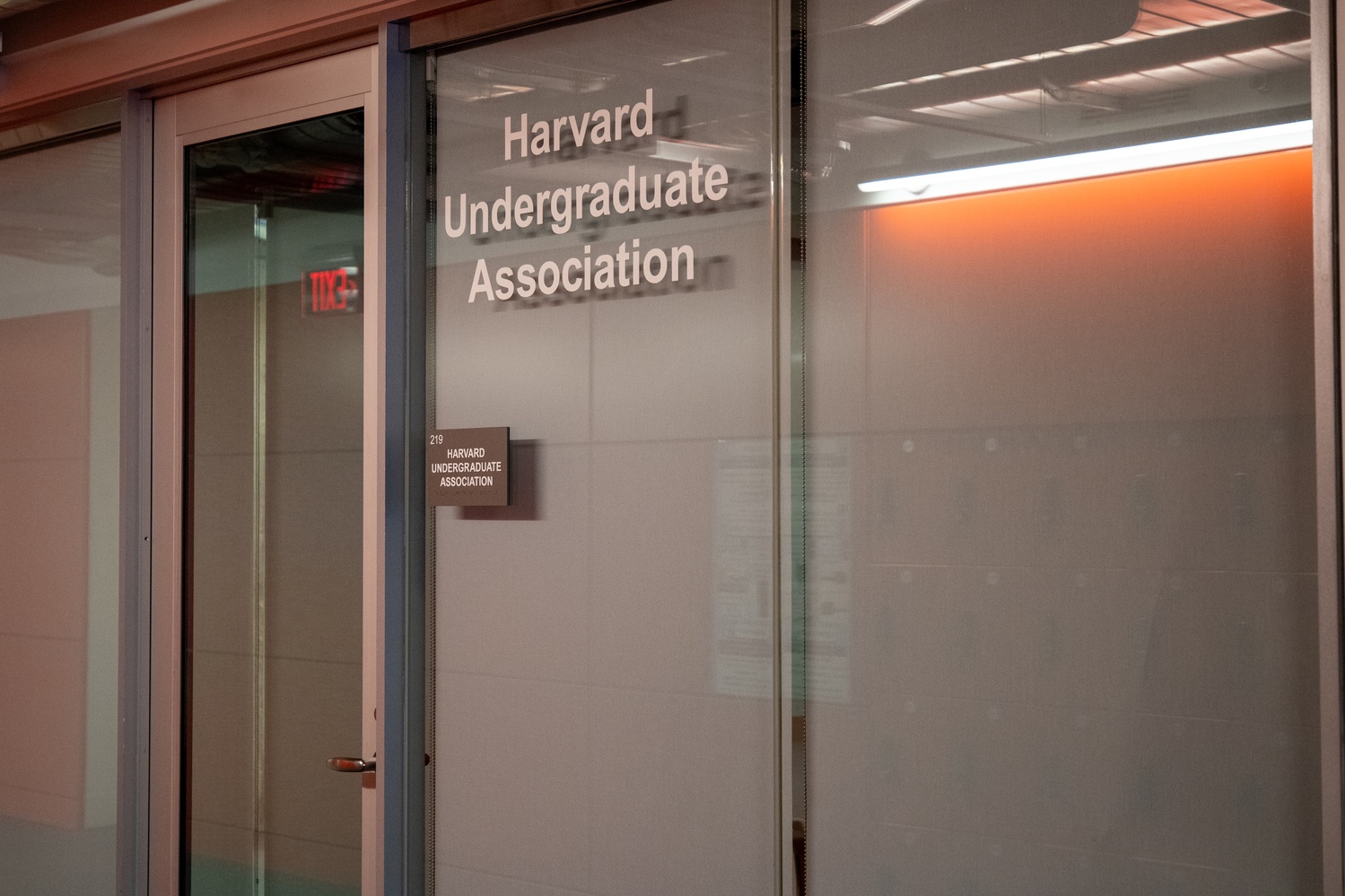
News
News Flash: Memory Shop and Anime Zakka to Open in Harvard Square

News
Harvard Researchers Develop AI-Driven Framework To Study Social Interactions, A Step Forward for Autism Research

News
Harvard Innovation Labs Announces 25 President’s Innovation Challenge Finalists

News
Graduate Student Council To Vote on Meeting Attendance Policy

News
Pop Hits and Politics: At Yardfest, Students Dance to Bedingfield and a Student Band Condemns Trump
HUA Problem Solving Team Approves Constitutional Reforms Limiting Student Referenda

The Harvard Undergraduate Association’s problem solving team approved constitutional reforms on Wednesday limiting the scope of student referenda to HUA-specific matters but instituting a semesterly undergraduate survey on broader topics.
Five out the seven members of the problem solving team approved the recommendations, proposed by the HUA’s Executive Team, as of Wednesday morning, ending a months-long constitutional crisis over how the HUA would handle student petitions for College-wide referenda.
The intervention from HUA leadership also ended a crisis of inaction within the problem solving team itself, which formally met only once and failed to carry out its mission of resolving the constitutional dispute since it was convened in April.
The ad hoc body was convened by HUA days after the Harvard Undergraduate Palestine Solidarity Committee successfully passed a petition to initiate a referendum on whether Harvard should divest from institutions supporting “Israel’s occupation of Palestine.” The creation of the problem solving team indefinitely halted all student petitions, including the PSC’s.
But since its inception, the problem solving team offered no recommendations to the HUA on how to resolve the crisis, prompting Assistant Dean of Student Engagement and Leadership Andy Donahue – the College’s official adviser to the HUA – to encourage HUA leadership to send their own proposal to the problem solving team.
On Tuesday, HUA Co-Presidents Ashley C. Adirika ’26 and Jonathan Haileselassie ’26 sent proposed constitutional reforms to the problem solving team, which stated that HUA sponsored referenda must focus on HUA policy, and that the HUA would conduct semesterly college-wide surveys to gauge opinions on questions submitted by student organizations.
Almost immediately after receiving the proposal, members of the problem solving team said they viewed the HUA Executive Team’s recommendations favorably because they eliminate drama associated with the HUA’s referendum process.
“I think it kind of cuts out student drama with regard to referenda — which is what happened last semester — while still allowing students to express their opinions on issues that have some sort of relation to the University,” said Jacob M. Miller ’25, a member of the problem solving team and a Crimson Editorial Chair.
Though the HUA Executive Team’s recommendations did not definitively clarify the fate of the PSC’s spring referendum, members of the team said they believe that referenda submitted to the HUA in the spring are effectively null.
“I would assume that they are functionally dead, because they’re not in line with the policies of right now,” said Henry P. Moss IV ’26, a member of the team and Crimson Editorial editor.
Lorenzo Z. Ruiz ’27, another member, said the new constitutional measures are intended to prevent controversial referenda proposals moving forward.
“I definitely think the goal is to try and avoid circumstances like that where you have a really controversial referendum come to the table in the first place,” added Ruiz, also a Crimson Editorial editor.
“While I don’t know if this will apply retroactively, per se, I do think that these guidelines will avoid us seeing encounters like this in the future, where parties are able to bring extremely controversial referendum topics to the HUA and expect to see them bring them to the student body for a vote,” Ruiz said.
Ruiz and Moss both said that uncertainty over the scope of the problem solving team’s powers and varying levels of commitment among members contributed to the team’s prolonged inaction.
For Moss’s part, he said he struggled to make it a priority.
“Some people within the committee had higher expectations than others,” he said. “I never really cared that much.”
—Staff writer Cam N. Srivastava can be reached at cam.srivastava@thecrimson.com. Follow him on X @camsrivastava.
—Staff writer Adithya V. Madduri can be reached at adithya.madduri@thecrimson.com. Follow him on X @adithyavmadduri.
Want to keep up with breaking news? Subscribe to our email newsletter.
Most Read
- Harvard Will Fight Trump’s Demands
- Trump Administration Freezes More Than $2 Billion in Federal Funding to Harvard
- A Palestine Exception to Harvard’s Academic Mission
- Adams House Withdraws Support for Anti-Zionist Passover Event, Citing Policy on Unrecognized Student Groups
- Harvard Kennedy School Dean Denounces Visa Revocations in Email to Affiliates
